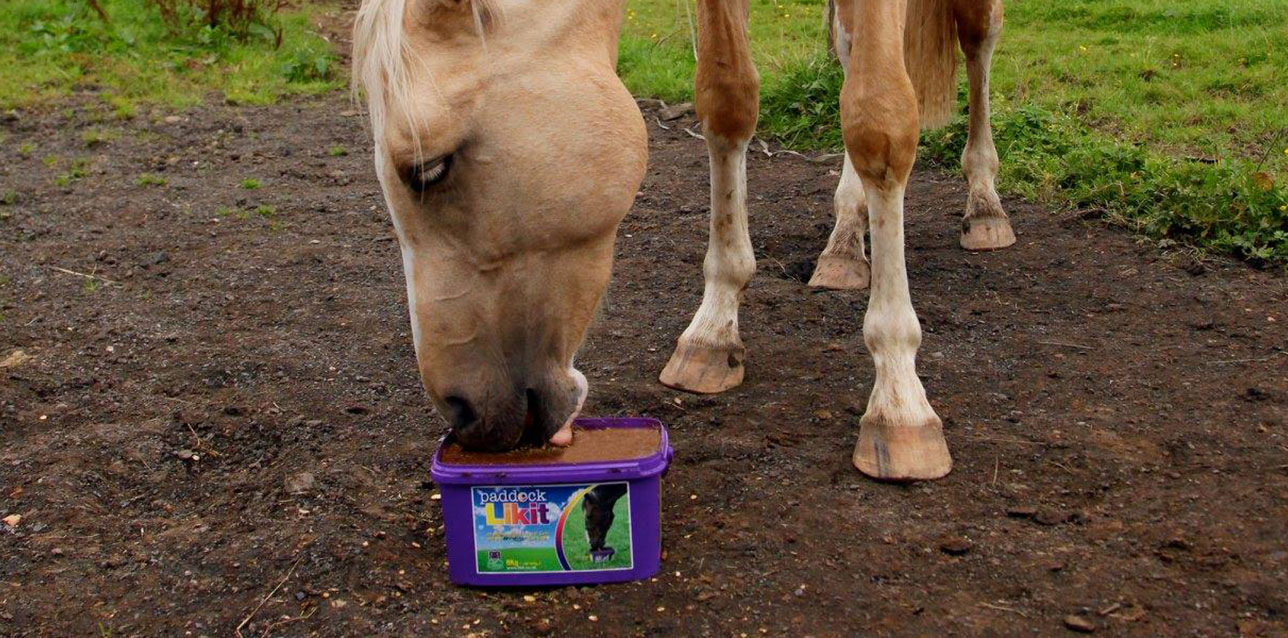
How can the Paddock Likit help?
The Science
“Modern” grasslands are mostly composed of specially developed grasses that respond well to fertiliser applications and provide essential forage for high yielding farm animals (dairy/beef/sheep). Such pastures can be detrimental for horses and ponies as it is easy for both to become obese and subsequently suffer from metabolic diseases/laminitis.
Traditionally horses and ponies grazed on extensive pastures containing a broad range of unimproved grasses as well as various naturally occurring herbs such as garlic and numerous weed species. Thus, their nutrient intake would be obtained from a wide variety of different plants of diverse composition.
Nowadays grazing horses and ponies obtain their nutrients from a limited range of “improved” grasses grown in the absence of weeds and herbs. These highly managed grasslands cannot provide the diversity and quantities of nutrients to horses and ponies that were previously available from the more traditional pastures. Therefore it is possible that these animals are not getting all they need from modern pastures. Furthermore, many animals are kept outside on “horse-sick” pastures that are obviously nutrient deficient, particularly common in warm/dry climates.
How to address these problems? In a grazing situation it is difficult to directly feed supplements as it requires feeding buckets for each animal and someone to “stand guard” to prevent dominant animals from bullying or stealing feed from the other animals. So, we need a practical solution to deal with this. The recent development of a self-help lick in the form of the Paddock Likit has solved the problem by giving horses 24 hour access to a multivitamin/mineral mixture that will make up for any nutrient deficits in the pasture. There is no need for supervision and there is little risk of bullying since, with unrestricted access, animals can visit the lick at any time of the day or night.
The Paddock Likit is also suitable for use in the stall, giving stabled horses free access to essential vitamins & minerals that they may be missing from their diet.


